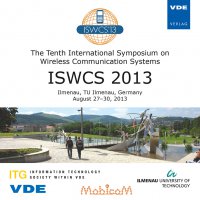Energy-Efficient Assignment of User Equipment to Cooperative Base Stations
Conference: ISWCS 2013 - The Tenth International Symposium on Wireless Communication Systems
08/27/2013 - 08/30/2013 at Ilmenau, Deutschland
Proceedings: ISWCS 2013
Pages: 5Language: englishTyp: PDF
Personal VDE Members are entitled to a 10% discount on this title
Authors:
Herlich, Matthias; Karl, Holger (Universität Paderborn, Germany)
Abstract:
Future radio access networks (RANs) will activate and deactivate base stations (BSs) depending on the activity of users to conserve energy. Reducing the fraction of time a BS is enabled will reduce the energy consumption of the RAN. Using cooperative transmissions from BSs allows to reach user equipment (UE) that is not in range of any single BS. When some BSs cooperate, other BSs can be deactivated. In this paper, we quantify the reduction in activity probability when BSs can cooperate compared to not cooperating. We assume the BSs are placed on a hexagonal grid and a spatial Poisson process places the UE. We calculate the probability that a BS has to be enabled depending on whether we allow BSs to cooperate or not. Allowing BSs to cooperate decreases the expected number of enabled BSs per area by up to 11%, depending on the user density. Additionally placing the BSs at the optimal distance for cooperation would reduce activity by additional 39 %. We conclude that cooperation can extend the range of BSs and thereby allow other BSs to be disabled and, thus, conserve energy.


